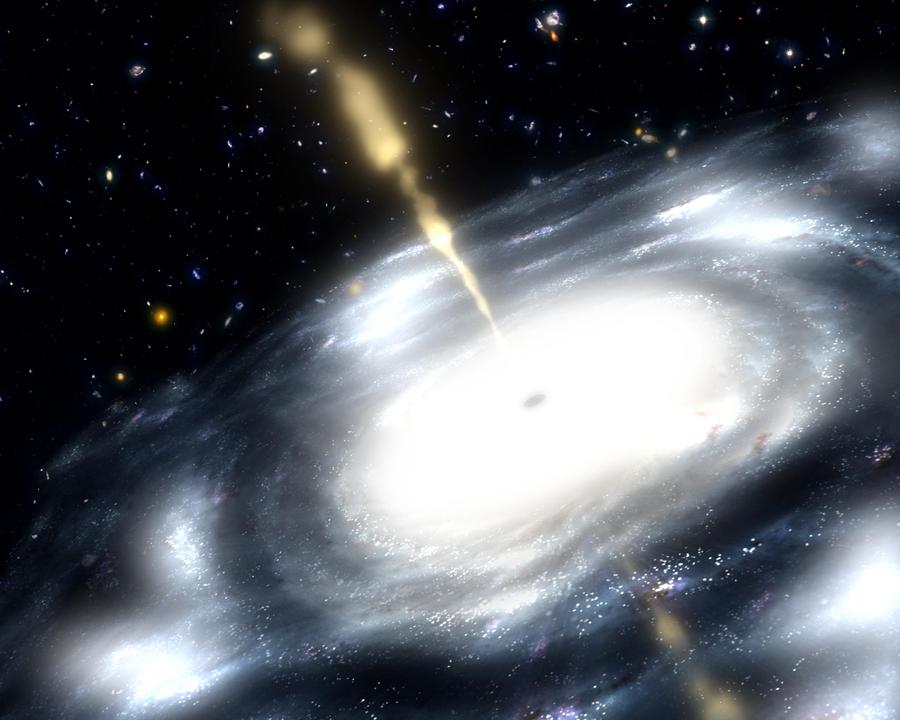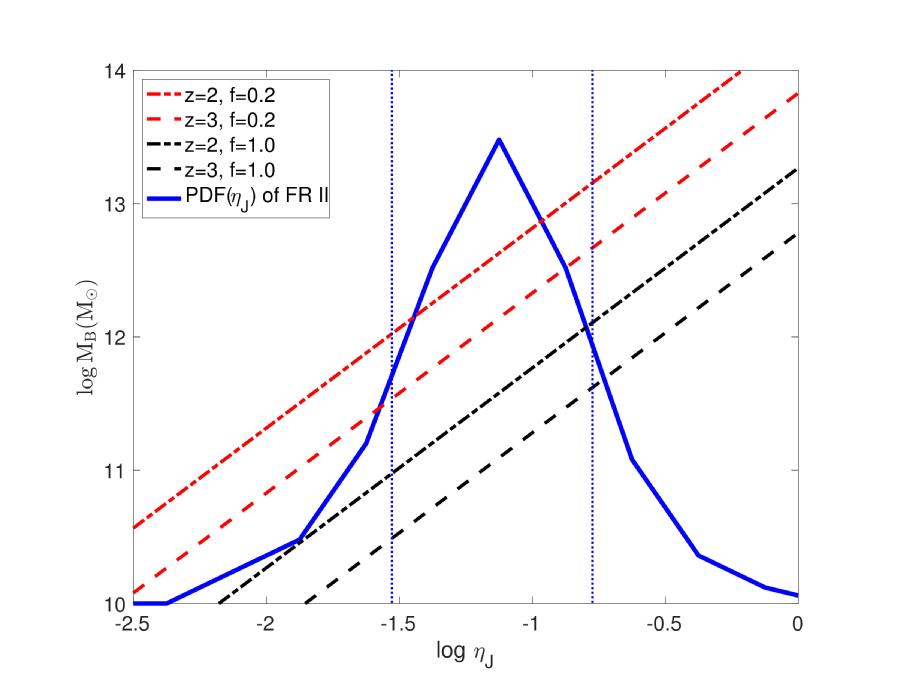Understanding galaxy formation is a core physics problem in astrophysics. Traditionally, it is believed that supermassive black holes at the center of galaxies suppress the overgrowth of galaxies by blowing away or heating gas that has already accreted into dark matter halos. However, Professor Renyue Cen from Zhejiang University proposed a novel external preventive feedback mechanism in his research paper Global preventive feedback of powerful radio jets on galaxy formation published in PNAS journal on August 19th, 2024.

Figure 1: A black hole is emitting a powerful type FR II radio jet.
Compared with traditional internal feedback mechanisms, this study proposes a new external preventive feedback mechanism. Using observational data, this study calculated the impact of the powerful radio jet energy generated by supermassive black holes (Figure 1) on the formation of surrounding galaxies. These radio jets or lobes inject enough magnetic field into the intergalactic gas, which is then hindered or prevented from accreting into other dark matter halos around it through magnetic pressure.
The results indicate that at redshift below two dark matter halos with masses below 1 trillion solar masses are significantly hindered by the intergalactic magnetic field generated by radio jets originating from supermassive galaxies in their accretion of intergalactic gas. The author wrote that this new effect can help explain the rapid decline in star formation in galaxies with redshifts below 2 and the sudden flattening of galaxy luminosity functions around redshift two.

Figure 2: This study predicts the cosmic magnetic Kins mass distribution of redshift 2-3.
Because the intergalactic magnetic field generated by radio jets from supermassive galaxies is strongest in the original galaxy cluster, the correlation with the magnetic field strength of the proto-clusters of galaxies can confirm the actual physical process of this feedback mechanism. At present, observations of magnetic fields around galaxy clusters, as well as in warm intergalactic media, are consistent with the predictions of this theory.
The author believes that this preventive feedback is a major mechanism currently lacking in large-scale cosmological simulations that is missing in the current state-of-the-art cosmological simulations. Proper consideration and inclusion of this process may provide the necessary physical basis in the next generation of cosmologicalhydrodynamic simulations with much reduced number of free parameters for feedback processes from supermassive black holes.
Professor Renyue Cen from the School of Physics, Zhejiang University is the sole author.
Article DOI: 10.1073/pnas.2402435121.



